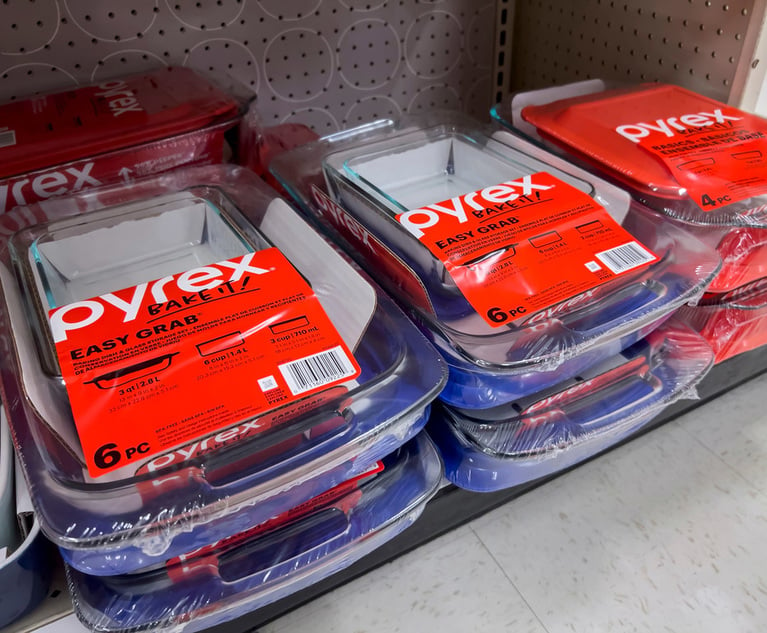 Peter F. Vaira
Peter F. Vaira Asserting the Fifth Amendment in Pa. Courts and Grand Juries Federal Law Applies
This column discusses them Fifth Amendment provision to the U.S. Constitution that provides for protection of a witness against compulsory self-incrimination.
September 20, 2021 at 11:28 AM
8 minute read
Civil ProcedureThis column discusses the Fifth Amendment provision to the U.S. Constitution that provides for protection of a witness against compulsory self-incrimination. This topic was suggested after reading the Pennsylvania Supreme Court's decisions regarding the conflicting rulings of the lower courts on the power of the state grand jury to issue reports, and the power of the district attorney to grant immunity to a witness. Likewise, members of the criminal defense bar report many instances where the assertion of the Fifth Amendment is often misunderstood by commonwealth prosecutors and supervising grand jury judges. This misunderstanding of the law and procedure was noted by the Investigating Grand Jury Task Force created by the Pennsylvania Supreme Court, which issued a report calling for training of supervising grand jury judges. See the report and recommendations of the Investigating Grand Jury Task Force, November 2019.
This content has been archived. It is available through our partners, LexisNexis® and Bloomberg Law.
To view this content, please continue to their sites.
Not a Lexis Subscriber?
Subscribe Now
Not a Bloomberg Law Subscriber?
Subscribe Now
NOT FOR REPRINT
© 2024 ALM Global, LLC, All Rights Reserved. Request academic re-use from www.copyright.com. All other uses, submit a request to [email protected]. For more information visit Asset & Logo Licensing.
You Might Like
View All
Judge Approves $1.15M Settlement, Reduces Attorney Award in COVID-19 Tuition Reimbursement Suit
4 minute read

Judge Leaves Statute of Limitations Question in Injury Crash Suit for a Jury
4 minute read
Passenger Sues Frontier Airlines for Burns Sustained From In-Flight Beverage
3 minute readTrending Stories
- 1Lululemon Faces Legal Fire Over Its DEI Program After Bias Complaints Surface
- 2Plaintiff Gets $500K Policy Limit Without Surgery
- 3Philadelphia Bar Association Executive Director Announces Retirement
- 4SEC Chair Gary Gensler to Resign on Trump's Inauguration Day
- 5How I Made Partner: 'Develop a Practice Area You Really Care About,' Says Jennifer A. Gniady of Stradley Ronon
Who Got The Work
Michael G. Bongiorno, Andrew Scott Dulberg and Elizabeth E. Driscoll from Wilmer Cutler Pickering Hale and Dorr have stepped in to represent Symbotic Inc., an A.I.-enabled technology platform that focuses on increasing supply chain efficiency, and other defendants in a pending shareholder derivative lawsuit. The case, filed Oct. 2 in Massachusetts District Court by the Brown Law Firm on behalf of Stephen Austen, accuses certain officers and directors of misleading investors in regard to Symbotic's potential for margin growth by failing to disclose that the company was not equipped to timely deploy its systems or manage expenses through project delays. The case, assigned to U.S. District Judge Nathaniel M. Gorton, is 1:24-cv-12522, Austen v. Cohen et al.
Who Got The Work
Edmund Polubinski and Marie Killmond of Davis Polk & Wardwell have entered appearances for data platform software development company MongoDB and other defendants in a pending shareholder derivative lawsuit. The action, filed Oct. 7 in New York Southern District Court by the Brown Law Firm, accuses the company's directors and/or officers of falsely expressing confidence in the company’s restructuring of its sales incentive plan and downplaying the severity of decreases in its upfront commitments. The case is 1:24-cv-07594, Roy v. Ittycheria et al.
Who Got The Work
Amy O. Bruchs and Kurt F. Ellison of Michael Best & Friedrich have entered appearances for Epic Systems Corp. in a pending employment discrimination lawsuit. The suit was filed Sept. 7 in Wisconsin Western District Court by Levine Eisberner LLC and Siri & Glimstad on behalf of a project manager who claims that he was wrongfully terminated after applying for a religious exemption to the defendant's COVID-19 vaccine mandate. The case, assigned to U.S. Magistrate Judge Anita Marie Boor, is 3:24-cv-00630, Secker, Nathan v. Epic Systems Corporation.
Who Got The Work
David X. Sullivan, Thomas J. Finn and Gregory A. Hall from McCarter & English have entered appearances for Sunrun Installation Services in a pending civil rights lawsuit. The complaint was filed Sept. 4 in Connecticut District Court by attorney Robert M. Berke on behalf of former employee George Edward Steins, who was arrested and charged with employing an unregistered home improvement salesperson. The complaint alleges that had Sunrun informed the Connecticut Department of Consumer Protection that the plaintiff's employment had ended in 2017 and that he no longer held Sunrun's home improvement contractor license, he would not have been hit with charges, which were dismissed in May 2024. The case, assigned to U.S. District Judge Jeffrey A. Meyer, is 3:24-cv-01423, Steins v. Sunrun, Inc. et al.
Who Got The Work
Greenberg Traurig shareholder Joshua L. Raskin has entered an appearance for boohoo.com UK Ltd. in a pending patent infringement lawsuit. The suit, filed Sept. 3 in Texas Eastern District Court by Rozier Hardt McDonough on behalf of Alto Dynamics, asserts five patents related to an online shopping platform. The case, assigned to U.S. District Judge Rodney Gilstrap, is 2:24-cv-00719, Alto Dynamics, LLC v. boohoo.com UK Limited.
Featured Firms
Law Offices of Gary Martin Hays & Associates, P.C.
(470) 294-1674
Law Offices of Mark E. Salomone
(857) 444-6468
Smith & Hassler
(713) 739-1250





